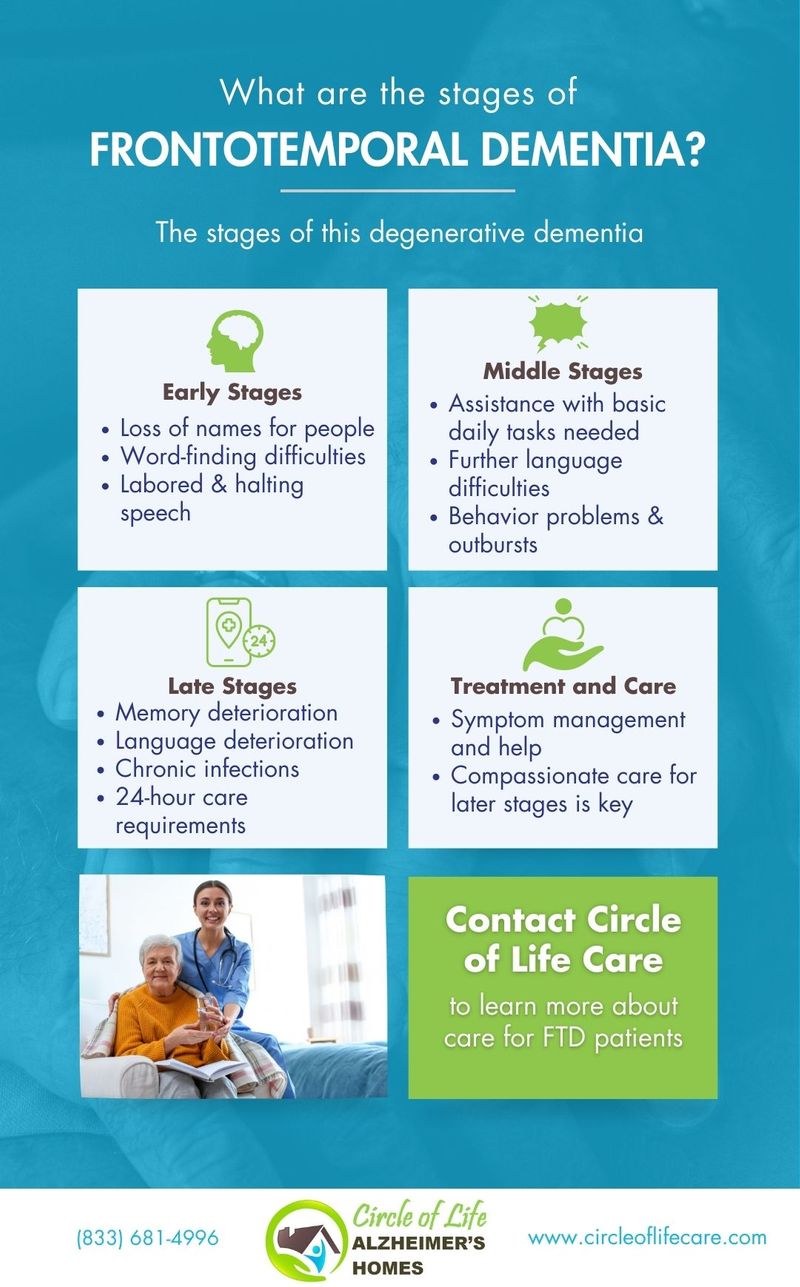What Are The Stages Of Frontotemporal Dementia?
Frontotemporal dementia is a diagnosis for about five percent of people who have a major neurocognitive disorder. This condition is one that tends to develop before the age of 65, so it’s a common diagnosis for those who are not quite elderly but are reaching or have reached retirement age. This condition is characterized by the degeneration of the frontal and temporal lobes of the brain, leading to major changes in behavior, language use, and more due to the lack of regulation functions in those areas of the brain.

Early Stages
Unfortunately, due to the variable nature of expressions in early-stage frontotemporal dementia, it can easily be overlooked or misdiagnosed. However, the early stages of this disease can present in a few consistent ways, causing changes in social interactions and personal behavior. In addition, a patient’s command of language can be affected in the early stages, characterized by difficulties remembering names of people, places, objects, and other important information. Halting, labored, or misused words and grammar can be another sign of early stage FTD.

Middle-Stage
In the middle stages of progression for patients with frontotemporal dementia, the signs and symptoms start to become more similar and easy to distinguish. The behavioral variant of this disease begins to cause issues carrying out daily-life activities, meaning that patients begin to need daily assistance, and behavioral changes and disruptions are more frequent. Language can be more noticeably impaired in the middle stages, too.

Late-Stage
The later stages of frontotemporal dementia begin to mimic the later stages of dementia caused by Alzhiemer’s disease, meaning that both language and behavior is affected and memory deterioration is a common occurrence. Patients in the later stages of FTD usually require round-the-clock care, like Alzheimer’s patients do, as well.

Treatment and Care with Circle of Life
While there are no FTD-specific treatments and there is no known cure for this disease, symptoms and signs may be managed and treated in the earlier stages of development. Cognitive rehab and speech therapy can potentially address the difficulties FTD patients experience, and more research is constantly being conducted to better understand this condition and find potential treatments.

Learn more about care for patients with FTD available from Circle of Life Care and contact us today.
